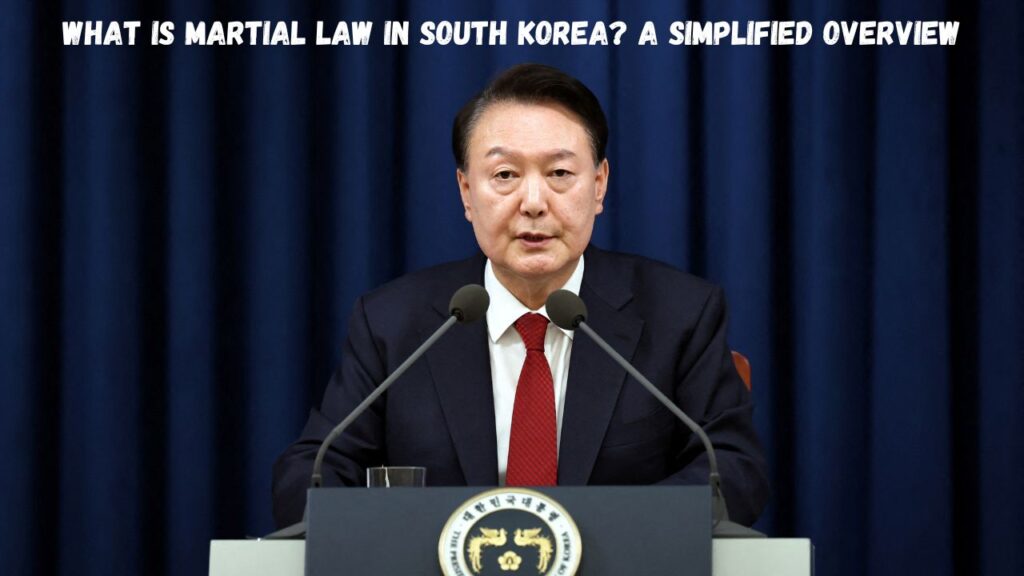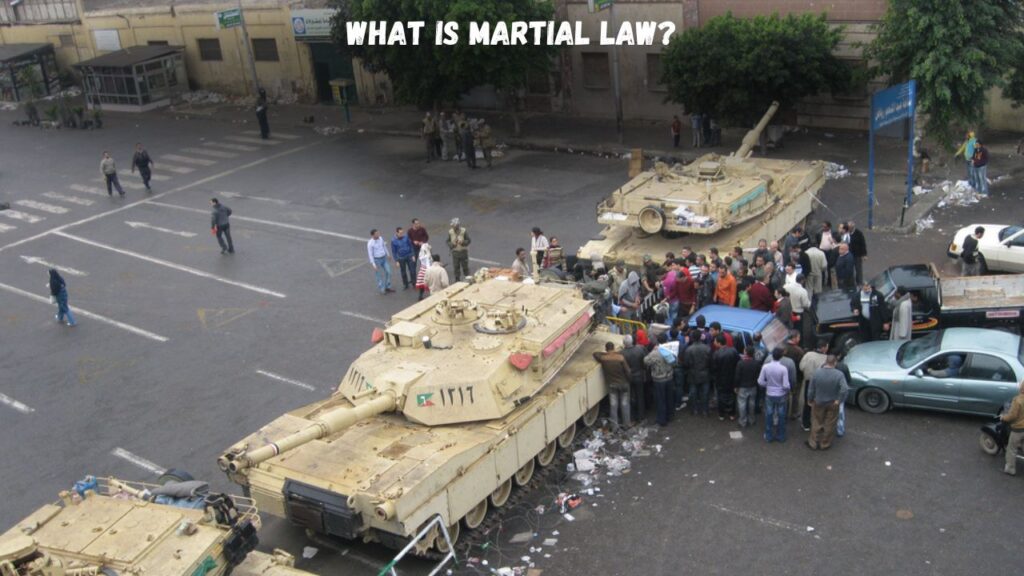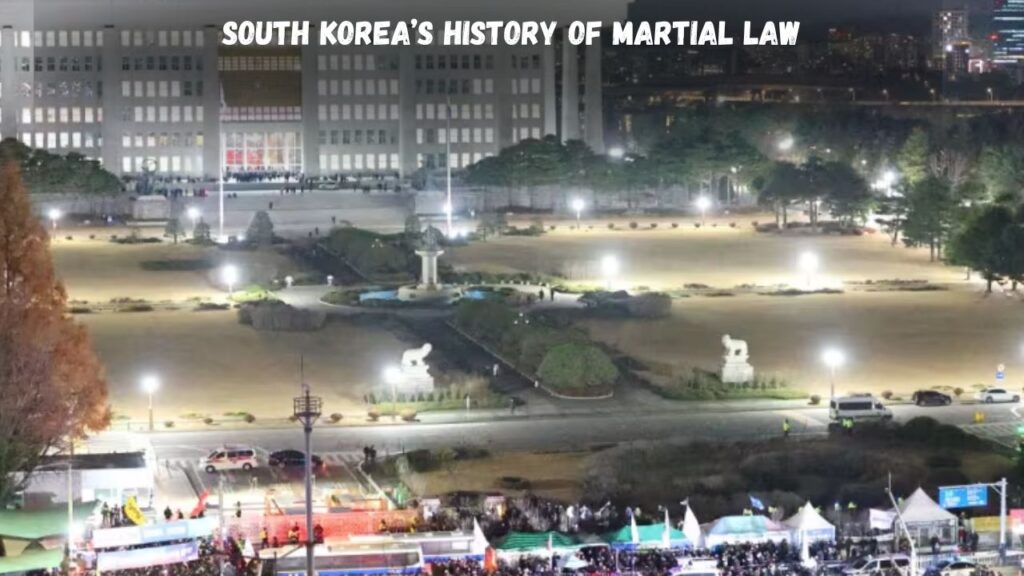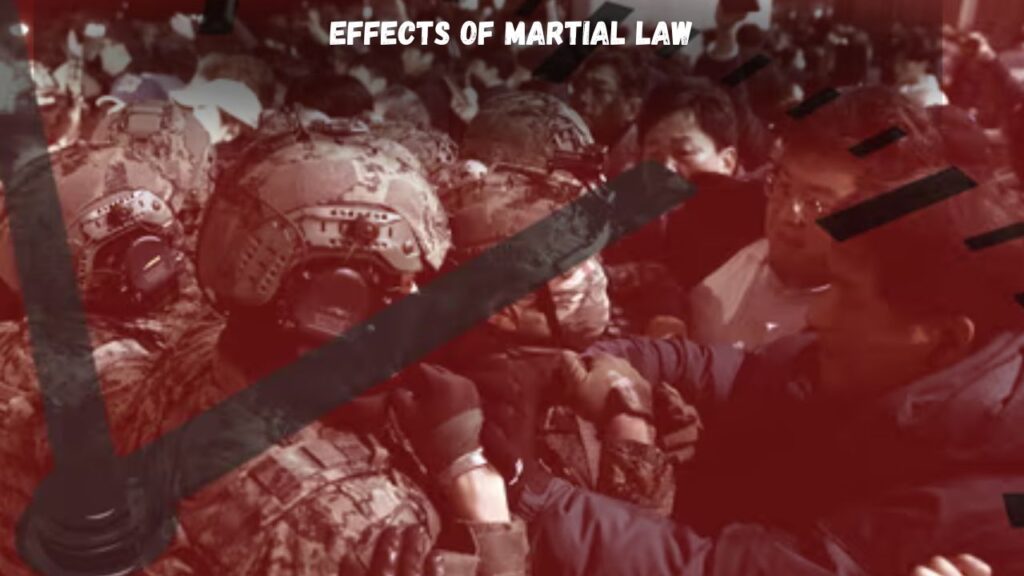Martial Law In South Korea: Martial law happens when the military takes over regular government roles during emergencies like wars or natural disasters. This article explains martial law in South Korea, its history, effects on society, politics, and the economy, and its current legal rules.

Contents
What Is Martial Law?

Martial law is when the military temporarily controls the government. This can happen during big emergencies, such as invasions, disasters, or serious unrest. During this time:
- Civilian Government Is Replaced: The military takes over from elected officials and police.
- Rights Are Restricted: People may lose freedoms like speech, movement, and assembly. Curfews and strict rules are often imposed.
- Military Handles Law and Order: Civilian courts may stop working, and military tribunals take their place.
- Emergency Response: Martial law is meant to restore order when regular authorities can’t.
- Temporary Rule: It should last only until the crisis is under control.
South Korea’s History of Martial Law

Early Days (1948–1960)
After South Korea became a republic in 1948, martial law was used during the Korean War and other conflicts to maintain order.
Military Rule (1961–1979)
In 1961, General Park Chung-hee used martial law after a coup to gain and keep power. He declared martial law again in 1972 to silence protests and make changes that gave him more authority.
Gwangju Uprising (1980)
One of the most tragic uses of martial law happened during the Gwangju Uprising in 1980. After President Park’s death, General Chun Doo-hwan declared martial law across the country to stop pro-democracy protests. In Gwangju, the military brutally crushed protests, killing many civilians. This event became a key moment in South Korea’s fight for democracy.
Recent Event (2024)
On December 3, 2024, President Yoon Suk Yeol briefly declared Martial Law In South Korea, claiming threats from North Korea and “antistate forces.” However, the National Assembly voted to cancel the declaration within six hours, showing the strength of South Korea’s democratic system.
Effects of Martial Law

On Society
Martial law often limits people’s freedoms and leads to human rights violations. For example, the Gwangju Uprising left a lasting scar, symbolizing the fight for democracy. The 2024 incident brought back memories of past abuses and sparked protests defending democracy.
On Politics
Leaders like Park Chung-hee and Chun Doo-hwan used Martial Law In South Korea to strengthen their control and suppress opposition. The 2024 declaration by President Yoon led to criticism and calls for his resignation, showing the risks of misusing such power.
On the Economy
Martial law creates political instability, which can harm the economy. In 2024, even though martial law lasted only a few hours, it caused the South Korean won to lose value. Prolonged uncertainty could have hurt investments and economic growth.
Legal Rules for Martial Law
South Korea’s constitution, specifically Article 77, outlines martial law:
Who Declares It: The president can declare martial law during war or emergencies.
Types:
- Emergency Martial Law: Limits freedoms like speech and assembly.
- Security Martial Law: Used during wars or major crises.
Approval Needed: The president must inform the National Assembly, which can vote to cancel martial law.
These rules ensure that martial law is not abused, and that democracy is protected.
Conclusion
History of Martial Law In South Korea reflects its transition from dictatorship to democracy. While martial law once symbolized repression, recent events, like the 2024 reversal, show the strength of the country’s democratic institutions.
Also Read: TMKOC 5th ko kya honewala hai?
Martial law reminds South Korea of the importance of protecting freedoms while addressing security concerns. The country’s experience offers valuable lessons about balancing safety and democracy.